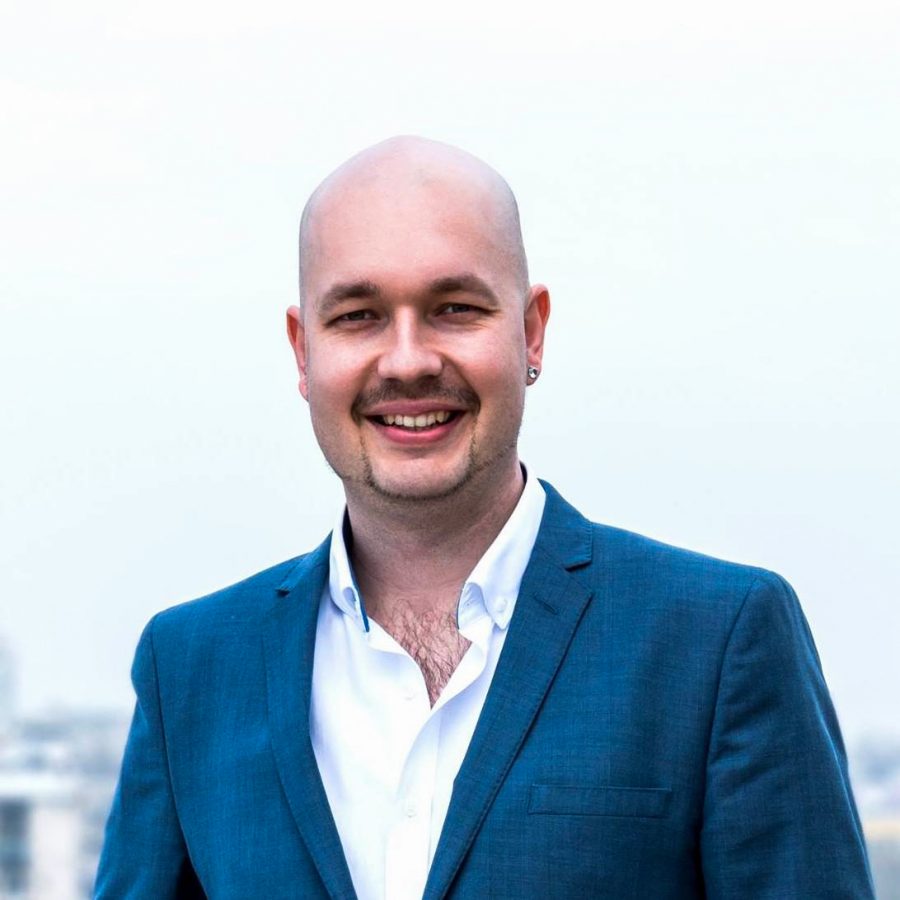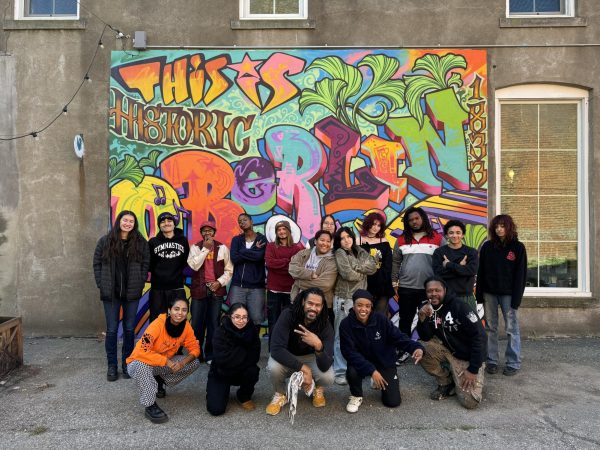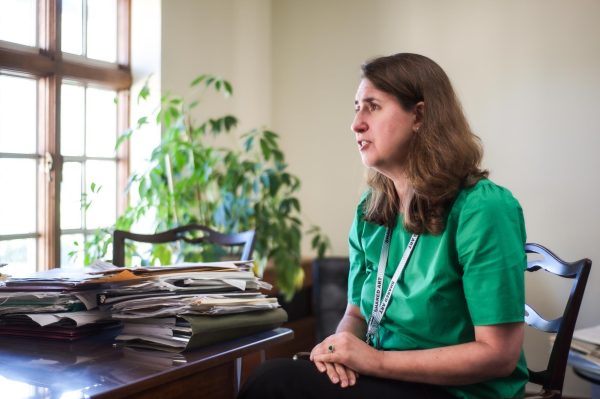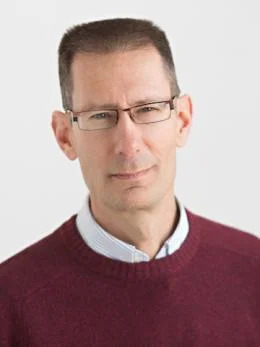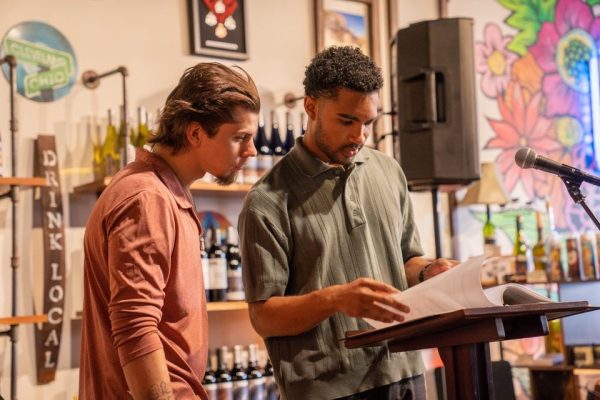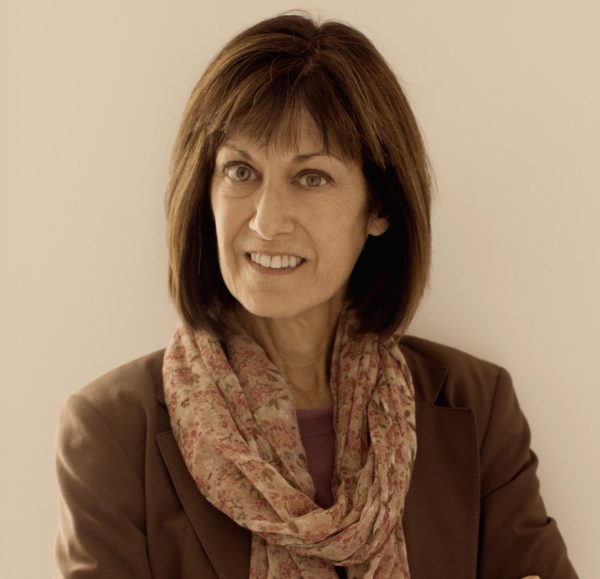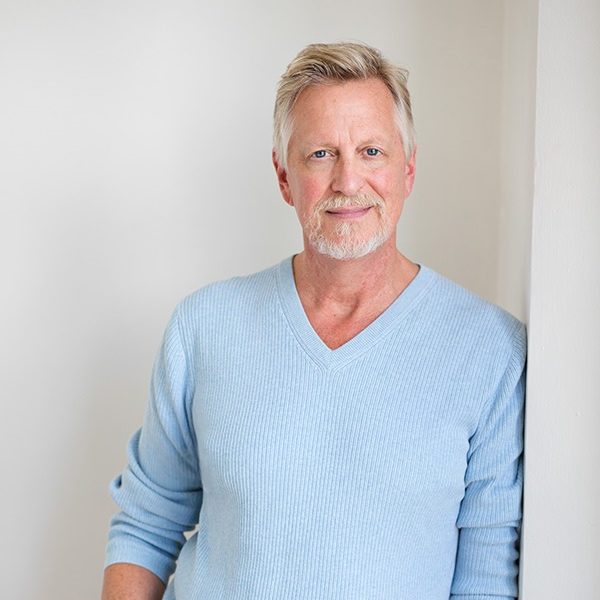On the Record with Nikita Makarenko
Photo courtesy of Nikita Makarenko
Artist-in-Residence Nikita Makarenko.
Artist-in-Residence Nikita Makarenko is a political journalist, theater producer, and musician from Tashkent, Uzbekistan. He is a producer at Ilkhom Theater, Uzbekistan’s first independent theater company. Makarenko gave a talk titled “Romantic Notions of the Revolution and Revolutionary Songs in Contemporary Post-Soviet Popular Music” at 4:30 p.m. today, and on Tuesday, he will give a talk about the recent paradigm shift in Uzbek politics at 4:30 p.m.
This interview has been edited for length and clarity.
Editor’s note: This interview contains discussion of murder.
You’ve been a political journalist, a rock musician, and a producer at Uzbekistan’s first independent theater company. What draws you to all these different things?
My main passion is arts. From the very beginning, I was a musician. I started an academic career … as a button accordion player. You know this instrument? It’s a Russian folk instrument which is similar to the accordion but with buttons, not with keys … I was doing good. In the Republic competition, I was number one. But then I decided that I don’t want to have anything related with academic music anymore. This [was] too difficult and too boring for me, [so] I turned to rock music. That’s how I became a rock musician. I started my first rock band in 2002. After that I had a lot of rock bands. I was constantly inside this movement, and I started to work in the Ilkhom Theater [in] 2008 as a musician, and then as a music producer. But rock music in Uzbekistan is not about business at all. It’s not about money. It’s a counter-cultural movement which has no relation with any profit. This is about protest. This is about self-expression.
And for sure, I thought about a profession which could bring me some money, and I [went] into journalism because it’s actually not factory working. This is kind of easy for an artistic person, to write and to express yourself in the paper. I started to work as a journalist [and] actually, I love it. It was really hard in times of our previous president Islam Karimov. Our country [has] existed for only 27 years, and for 26 years, we had only one president — Islam Karimov — and he was a tough dictator. It was really hard to do a journalistic job in this time. It was really, really tough. And [since] last year, we have a new president, and I will make a lecture on Tuesday about this transition [of power], which is unique for post-Soviet countries. For the first time in history, a country got a liberal president without revolution, without any violence. We just got him, … and it became really interesting to be a journalist, because right now we have total freedom of press. I could write anything I want. I have a great experience of working with U.S.A. media, and I can say that you have big problems with freedom of press, especially [in terms of] editorial censorship. Your editors in major media, they have stopped words, stopped persons — they have inner censorship. I know it for sure. But right now in Uzbekistan, I could honestly say we have more freedom, because … I work for the most popular online media in Uzbekistan, gazeta.uz, [and] we have no inner censorship at all. I just write what I want. This is how I combine two professions. Journalism is more for getting money, while art is what I am.
Can you tell me a bit about the rock festival you founded? How did that come about, and what is the festival like?
We have a very unique place in Tashkent, [where the rock festival is based]. During the Soviet Union, there was no freedom of expression at all, … but in 1974 a theatrical director whose name was Mark Weil — he was an ethnic Jew who was born in Tashkent — he opened the first-ever independent theater in the Soviet Union. It was possible because Tashkent was too far from the Kremlin, and actually they didn’t care about what [was] happening [there], so we had a little more freedom in Soviet times than [we would have had] in Moscow, for example. He opened this theater called Ilkhom, which translates from Uzbek as “inspiration.” It became so popular — actually, it was the only place in the Soviet Union where you could see a fresh, new, and sharp drama. People from all over the Soviet Union used planes to get to Ilkhom shows and come back. After Uzbekistan proclaimed independence in 1991, Ilkhom became the only independent theater now in modern Uzbekistan. For 27 years, we were the only stage where people could impress themselves without any fear and absolutely free. It was because Ilkhom was very popular in the world. If you are deep in the theater, you know about Ilkhom. We had tours, we crossed Europe and [the] U.S.A. for months. Everybody knew us. They just couldn’t shut us down without a big scandal. We lived under slight pressure. But we existed, and it was possible to perform anything on our stage.
In 2011, rock musicians and the rock movement in Uzbekistan started to feel more pressure from the government, because the government … proclaimed rock musicians as “evil.” They said, “Rock music is satanic music. Hip-hop music is criminal music. They have nothing in common with Uzbek traditions, and we should get rid of it.” They started to shut down rock bars and rock venues. They started to close any rock event. Starting from 2011, Ilkhom Rock Fest, my festival, was the only stage for rock musicians in the country. We started the rock festival a few years before in 2007, and our idea was to give a theatrical stage to rock musicians to develop their artistic skills. Just imagine, in a typical rock show, everybody’s dancing or standing with a beer. At our festival, people [are] sitting, like in a theater, and very carefully listening to the music. This is a big difference, we are really pushing musicians to do something more than just standing in heroic poses and playing rock. We push them to find ideas, to make shows, to involve light, dance, theater — anything they want to make a theatrical rock show. We’re doing one show per two months through the season, and every concert is a big solo show. [Last year’s] season was the 10th anniversary, so now we’re starting season number 11. It’s always popular. We’ve always had a full house.
What brought you to the U.S. for this current residency?
The organization which invited me [to the U.S.], CEC ArtsLink — [they] are so good, and they are the most well-organized institution which develops cultural ties between Central Asia and the United States. Nobody else does it. Your government doesn’t care. Nobody else cares, but CEC ArtsLink [has been] doing it for [more than] 20 years. It could be really interesting for Oberlin students, because it works both ways. Central Asian artists can go to the United States for an art residency, while United States artists could apply to work with Central Asian artists. And right now, it is grant season. Probably until mid-November, your artists could apply. It’s an interesting opportunity.
You also wrote a textbook, The Standards of Western Journalism for Arts Journalists?
During my journalistic career, I was working in different international media. I [had] a friend, a journalist from New York, Chris Schwartz, [who] was developing the first-ever civil journalism at work in Central Asia. Chris constantly had a human resources problem, because the way [that the] faculty of journalism everywhere in Central Asia teaches their students is just awful. It has nothing in common and nothing related to modern and contemporary journalism. That’s why there is a big problem in human resources. If you want to have a really interesting and modern media, you just have no people. Me and Chris, we came to the idea that we needed to create a book where we could write just the basic standards, which people don’t know in Central Asia at all. For example, you know what the inverted pyramid is? Nobody knows it in Russia or in post-Soviet countries. Nobody told me about the inverted pyramid during my four years in university. The post-Soviet standards of journalism [are] completely different. In Western countries, a journalist is just a third-party person … when you’re telling a news [story], you don’t involve yourself. You get quotes from the people who were involved. But in the post-Soviet tradition, it’s not like that. In the post-Soviet tradition, journalists are always involved. If you are [writing] about the news, you’re always telling your opinion. That’s the biggest difference. We created this book to explain to our young journalists about Western standards, and we organized a series of workshops through Central Asian capitals with this book.
In your experience, what effects do sociopolitical and economic phenomena have on art?
Politics and economy are different topics, so let’s talk separately. If we talk about politics, for 26 years we had one of the most repressive regimes in the world, ever. If you just looked into different United Nations ratings like “freedom of the press” or “human development” or anything else, we were always top five from the bottom. Especially in the corruption index — we always were second place from the bottom, because corruption is the second name of our country. For sure, in these political conditions where total censorship controlled everything, it was completely dangerous to be a really free artist. You should know that the founder of our theater, Mark Weil was killed in 2007 just on the night before the premiere and the opening of a new season. After the last rehearsal, he was returning from Ilkhom and he was stabbed in his apartment. There are a lot of versions [of] who did it and why. Some people think it was definitely political, some people think it was about anything else. Actually, you should know that in Uzbekistan, to be gay is a crime. If police discover you are gay, you will go to prison for five or six years. And Mark Weil was openly gay. He never hid it, and in our theater Ilkhom, we had a few plays which raised questions of self-identity and homosexuality. A few people think it was about [that]. But the government showed us a few people, there was a trial, and those people said that they killed Mark Weil because of our play Imitation of the Koran, which was staged six years before his death. Imitation of the Koran is [adapted from] poetry by Alexander Sergeyevich Pushkin, … the great Russian poet. The government organized the trial, and these guys said they killed him because of [that play], and they got 15 or 16 years in prison and they are still there. But we don’t know. Is it real, or not? It’s just an example of the life of an artist in Uzbekistan.
And the economy. For sure, we had one of the worst economies in the world. You can’t imagine, but we had no free currency market. For example, our national currency, you just couldn’t convert it to dollars or back. There was no free market of currency. During the Soviet Union, the system of economy was a so-called planned economy, … [which] means that the government says “the price of meat in this year will be like this,” and “this factory will produce 3,000 cars.” After the Soviet Union fell, most of the post-Soviet republics, they converted their economy to market [economies], but not us. We’re still attached to a planned economy, and that was a really big problem. Standards of living for people were very low, which influenced the arts a lot. A lot of artists emigrated. Thousands of artists emigrated. We had a lot of well-known artists who had to emigrate. Our people are everywhere because of the bad economy.
In terms of today’s talk, what do you mean by the “romanticization of revolution,” particularly in music?
I’m very deep into the rock music of post-Soviet countries, because I love rock. When I planned to come to Oberlin, I discovered that you have a series of events which are related to the October Revolution anniversary. I asked … Professor Ian MacMillin how I could be useful and what I could do for this series of events, and we came to the idea that it could be interesting to analyze [whether] there are any romantic notions in modern rock music of post-Soviet countries. I started to research, because I never thought about it, and I discovered that it’s very, very funny and interesting. It’s a paradox. [During the] Soviet Union, rock music was … a crime. You could get [into] a lot of problems if you were playing rock music, or even listening to it. Rock musicians in Soviet times — they were in front of [the] struggle. They were an avant-garde of democracratic forces and a democratic style of thinking. They were a hope of all liberal people. But right after the Soviet Union fell, a lot of bands turned 180 degrees and started to glorify communism and sing about nostalgia of Soviet times … I analyzed why it happened, and why these bands [are] doing this.
And I discovered that there are a few reasons why people have romantic notions, and a few reasons why rock bands
have romantic notions and they glorify communism still. Some [of them] do it because of nostalgia; some [of them] do it because they are really disappointed in a democracy and free market; some [of them] do it because they just love the aesthetics of revolution and communism.
Is there anything else that you would like to add?
I consider [that today’s talk] will be a little bit specific, because it’s interesting only for people who are interested in music. But my lecture on Tuesday could be really interesting for everybody. I already [gave] it at Columbia University two weeks ago … and my lecture is about what is happening right now in Uzbekistan, because nobody outside of Uzbekistan really understands what is happening. As I told you, this is a unique situation where a dictatorship was replaced by a very liberal government without any violence. It’s never happened in any post-Soviet country, and I don’t think it ever happened anywhere else [except] maybe in Czechoslovakia in the late ’80s. … At Columbia University, we even had people from the U.S. [State Department] who came to listen to me and they told me “thank you … because we don’t understand what is happening right now in Uzbekistan, and it was really interesting for us to find out.” On Tuesday, I will give you all the chronology of how it happened, and I think it will be really interesting for people who are interested in politics. … I believe that in the United States, especially in the government, there is a strong idea that dictatorships or non-democratic regimes can be replaced only with violence, and we see how you do it across the world. But I will give you a nice example of how the United States completely failed in Central Asia, especially in our country … they have no influence at all. But … we converted to democracy and a very liberal government [anyway].


